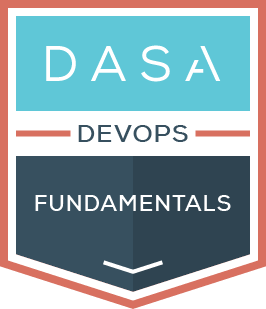To compete in the digital age, it is becoming increasingly important to move away from an activity based functional teams to multidisciplinary product teams consisting of business ( product owners, designers, UX, business analysts… ) and IT (developers, testers, security, operations …. ) folks. However, for the newly created product based teams to become successful they need to make local decisions that are strategically sound – aligned with the organization’s strategy, which means they need to understand the larger business context in which they operate as well as how organizations compete in the digital age.
Unlike the industrial age, the digital age is characterized by rapid technological innovation, demanding customers and a globally connected world, with new products and new business models constantly threatening existing products and business models. As a consequence, to survive and thrive in the digital age, organizations have the dual and competing requirement to exploit existing products and business models while exploring new products and business models, at the same time. And, the only way to do that is by adopting and adapting these modern management practices that enable organizations to compete effectively : Lean Startup – To explore new products and business models by conducting experiments and obtaining validated learning through minimum viable product ( MVP ) ; Agile software development – to iteratively develop high-quality software at speed ; and DevOps – to build the team structure of fully autonomous product teams with end to end responsibility for the product ( You build it, You run it teams) – to experiment, build, deploy, operate and learn from customer.
At DASA ( DevOps Agile Skills Association) we recommend the ” The three horizon’s model by Mehrdad Bagahai, Stephen Coley and David White ” and cover it extensively in the DASA DevOps Fundamentals course, as a way of organizing the portfolio of investments ( horizon 1, horizon 2 and horizon 3) and for structuring teams to support the three horizons. The Lean Enterprise, How High-Performance Organizations Innovate at Scale, By Jez Humble, Barry O’Rielly, Joanne Molesky, recommends this model, as well.

Source: DASA DevOps fundamentals course book
Horizon 3: This is the domain of lean startup, where the goal is to work with a defined runway ( of cost and time) to create experiments – build a minimum viable product to confirm or invalidate the hypothesis. The aim of the experiment is to validate product/market fit, and the goal is to do it by building a minimal amount of code. If the hypothesis is confirmed, persist with the idea, if not pivot and move on to testing the next idea. Validated product ideas and business models then move to horizon 2. To excel in horizon 3, teams need to have the leadership mindset of innovators.
Horizon 2: The validated product idea now arrives in horizon 2. The goal in horizon 2 is to grow and market the product to generate a new revenue stream which drives capital investment and expansion of engineering capability. And from an engineering perspective, the goal is to deliver the product at speed and to scale it rapidly, which requires constant monitoring of customer usage and delivery of new product features. The leadership mindset of horizon 2 teams is that of builders – grow the business entrepreneurs and highly skilled engineers.
Horizon 1: The goal in horizon 1 is to operate the product at the lowest possible cost while maximizing margin. The leadership mindset of horizon 1 product teams is that of operators supporting the business in achieving revenue, market share and profitability goals.
To drive home the urgent need for organizations to adopt and adapt the modern management practices of Lean Startup, Agile and DevOps that enable them to compete effectively in the digital age – by exploiting existing business models while exploring new business models, here is an illustration of Intuit’s and Google’s use of the three horizons model.

Lean Enterprise, How High-Performance Organizations Innovate at Scale, By Jez Humble, Barry O’Rielly, Joanne Molesky
If this has piqued your interest, check out and attend the DASA DevOps fundamental course, for guidance on building high performing teams required to compete in the digital age..


DASA DevOps Fundamentals
Provides an extensive introduction to the core agile DevOps principles covering the essential knowledge and skill competences that have been defined by DASA.
